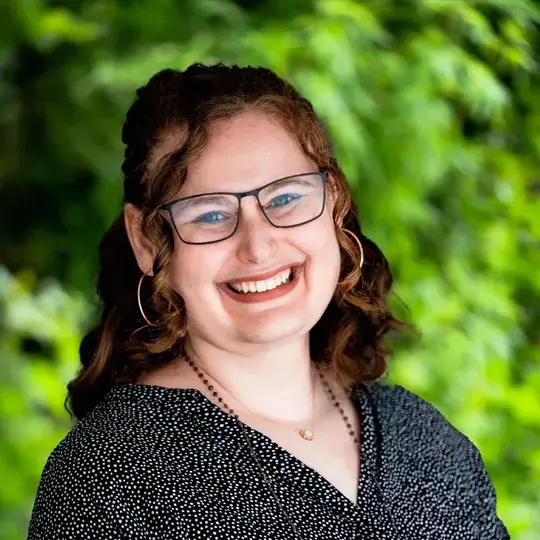If you are interested in seeing the dual diagnosis treatment centers California has to offer, look no further! Launch Centers specializes in treating mental health disorders, substance use disorders, and co-occurring disorders. Since conventional methods for mental health or addiction separately are frequently unsuccessful, centers dedicated to treating dual diagnosis are an effective place to begin your journey toward health and wellness.
Continue reading to learn more about dual diagnosis, the signs of this disorder, and the many therapies used in dual diagnosis treatment.
What is a Dual Diagnosis?
Dual diagnosis, otherwise known as a co-occurring disorder, indicates that a person is dealing with both a mental health issue and an addiction to drugs or alcohol. Common mental health issues that occur in conjunction with substance use disorders are depression, anxiety, and Post-Traumatic Stress Disorder, while addiction to drugs or alcohol is an example of substance use disorder. Due to the fact that the symptoms of a mental health disorder and addiction can interact and increase each other, diagnosing and treating dual diagnosis can be difficult. Therefore, simultaneous treatment of both conditions is essential for the most favorable outcome of recovery.

Why Are Dual Diagnosis Treatment Centers Important?
Dual-diagnosis treatment centers are essential because they provide tailored care for people who have both mental health issues and substance abuse problems. These facilities have personnel who are knowledgeable in the intricate nature of dual conditions and how to manage them properly. Standard treatment plans for mental health or addiction on their own may not be effective for individuals who have dual conditions. Dual diagnosis treatment centers use a comprehensive approach that takes into account both the mental health disorder and the substance abuse problem simultaneously. This can lead to a better result for the person since an untreated mental health condition can hinder addiction recovery, and the reverse is also true.
In addition, dual-diagnosis treatment facilities may have access to a greater selection of treatments, such as various kinds of counseling, medication management, and peer support, that can be personalized to the particular requirements of the person.
Common Dual Diagnoses
It is essential to understand that an individual with a dual diagnosis necessitates a more intricate treatment plan and may necessitate a team of healthcare professionals with various specialties in order to adequately address all of the individual’s requirements. Some of the most common dual diagnoses include the following:
Depression and Borderline Personality Disorder (BPD)
People with BPD may often find themselves in a dual diagnosis of BPD and depression, as the former can cause difficulty regulating emotions and lead to feelings of depression. It is important to seek professional help at the earliest sign of any mental health condition to effectively manage it. A therapist can provide support and treatment plans that will help an individual overcome their BPD and depression, providing them with the best chance for recovery.
Post-Traumatic Stress Disorder (PTSD) and Substance Use Disorder (SUD)
Post-traumatic stress disorder is an illness that can develop in individuals who have lived through or witnessed a distressing incident. Individuals with PTSD could have flashbacks, bad dreams, and avoid reminders of the traumatic event. Alternatively, substance use disorder is a problem in which an individual is unable to manage their usage of substances, regardless of the unfavorable effects this may have. Those with PTSD may resort to drug or alcohol use as a way to manage their symptoms, leading to a dual diagnosis of PTSD and substance use disorder.
Schizophrenia and Substance Use Disorder (SUD)
A dual diagnosis of schizophrenia and addiction is a common outcome for individuals who have schizophrenia who turn to substance use as a way to cope with their symptoms. This is often due to the inability to receive adequate mental health treatment or support and can further complicate existing symptoms. Treatment for both conditions should be coordinated and integrated in order to increase the chances of successful recovery, as this dual diagnosis can be difficult to manage.

Depression and Anxiety
People with dual diagnosis can experience this cycle of anxiety leading to depression in a particularly intense way. It is important for clinicians to pay attention to the particular interplay between these two conditions, as they can be more difficult to treat when they co-occur. It is also important to note that each person’s experience with dual diagnosis may look different and should be tailored to fit their specific needs.
Dual Diagnosis Treatments
When dealing with dual diagnosis, the standard procedure is to treat both the mental health issue and the drug or alcohol addiction simultaneously. This approach is referred to as either integrated treatment or co-occurring disorder treatment. There are various treatments that have proven to be effective in addressing dual diagnosis, including:
Medication-Assisted Treatment (MAT)
Medication-assisted treatment (MAT) is an evidence-based approach used to address mental health and addiction which combines medication with counseling and behavioral therapies. Antidepressants, antipsychotics, and other mood-stabilizing drugs are commonly prescribed to treat mental health issues. In addition, naltrexone and acamprosate may be employed to diminish cravings and withdrawal effects in people with substance abuse problems. MAT involves the careful monitoring of medications to ensure the optimal level of benefit with minimal side effects. It has been shown to be particularly effective for individuals who have failed traditional treatment or are struggling with multiple chronic conditions.
Therapy
Cognitive-behavioral therapy, dialectical behavior therapy, and motivational interviewing are all therapeutic strategies that can be used to manage both mental health conditions and substance use disorders. These approaches have been proven to be effective in treating a variety of mental health disorders, such as depression and anxiety, while also providing insight into the use of substances. It is important to note that these therapies can be tailored to any individual’s needs, as each person may require different levels of care and attention.
Inpatient Rehab
For some individuals, inpatient rehab may be the best option to facilitate their recovery. Residential treatment programs provide a safe and supportive environment, monitored around the clock by health professionals to ensure individuals are on track with their recovery goals while they focus on their physical, mental, and emotional well-being. By providing an immersive therapeutic experience, these programs can give individuals the best chance of overcoming their challenges in the long run.
Support Groups
Support groups like Alcoholics Anonymous and Narcotics Anonymous provide an invaluable source of support for individuals with substance use disorder. These organizations not only give people the opportunity to connect with others who relate to their challenges but also foster a sense of belonging and acceptance in a judgment-free environment. Through peer-to-peer support, members can share experiences, discuss strategies for recovery, and find encouragement to stay sober. Support groups are an essential resource for those affected by substance use disorder, and can play a key role in helping them on their journey to recovery.
Aftercare
Aftercare programs are essential for long-term success in recovery and relapse prevention. They may include components such as ongoing therapy to provide emotional support, participation in support groups with peers who are also in recovery, and medication management to ensure that individuals have the medications they need to stay well. Aftercare programs can provide a critical foundation for individuals in recovery to maintain their sobriety and achieve holistic well-being.
What to Expect at a Dual Diagnosis Treatment Center
When seeking help from a dual diagnosis treatment center, people should anticipate a thorough assessment in order to ascertain their individual requirements. This assessment will usually involve a physical assessment, a mental evaluation, and an analysis of drug or alcohol use. Such an assessment will assist in finding the most suitable treatment plan for the person’s precise needs.

After the evaluation is completed, treatment at a dual diagnosis facility can involve a mix of medication management and a variety of individual, group, family, and holistic therapies. It is significant to remember that the plan of care will be adapted to the particular person’s needs and could fluctuate as they advance in their healing. Moreover, the length of the treatment can differ depending on the person and the intensity of the situation; some may need a brief treatment program, while others may require a longer period in order to reach the desired result.
Dual Diagnosis Treatment Center in California
Launch Centers‘ clinical and holistic program provides the perfect environment to help those with a dual diagnosis. The program focuses on educating young adults on both the mental health and career elements that are necessary for success.
Our team of experts is experienced in providing comprehensive individualized treatment plans that are tailored to meet the unique needs of every client. Contact Launch Centers today to learn more about how we can help you achieve your goals and change your life for the better.






